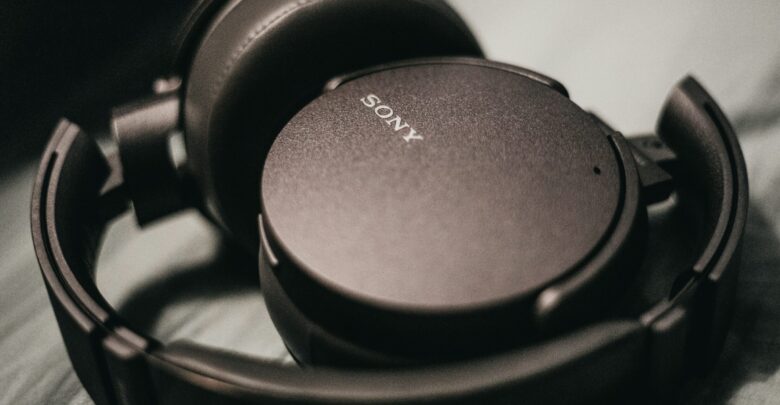 Logan Gutierrez
Logan GutierrezDid you hear that car that almost ran you over? Or did your noise-cancelling headphones drown it out? We are now living in an age where modern technology goes everywhere we go. With that, it’s more and more common to find people walking anywhere and everywhere with headphones on. The issue of self-isolation has been brewing for decades, but now it’s starting to boil over, partly because of noise-cancelling headphones.
Scholars have looked at how headphones affect our society and social interaction. Shuhei Hosokawa has argued that we can find music everywhere in non-musical things like “the voices of vendors.” Places like Whyte Avenue are always filled with the noise of people in bars, restaurants, or record stores. But, in the eighties, the Walkman — the first portable music player you could use headphones with — started eating away at that noise. Instead, headphones became a way to isolate yourself from the noise of other human beings.
The issue of self-isolation and social disconnect from others driven by the use of headphones is clearly a long-standing one. It is now, however, that this issue is becoming too extreme because of the use of noise-cancelling headphones.
But, to be entirely clear, not all uses of noise-cancelling headphones are bad. For example, noise-cancellation can be incredibly handy when you need to block out noises for studying. It can also be incredibly helpful to relax and calm down after a long day by blocking out unwanted noises. In a lot of cases, noise-cancelling can be of benefit to many people.
It becomes an issue when people use noise-cancelling headphones in every waking moment, like walking to classes, going to the cafeteria, doing laundry, and so on. Just recently, I counted fifty-one people that were wearing headphones while walking back from one of my classes. Now, it isn’t a sure thing that they had noise-cancellation on, but regardless this is a huge amount of people. Enough to make a difference in causing further detachment from your surroundings and lack of social interaction.
In contrast, I walked into the laundry room and someone was playing music through their phone while loading their clothes into the washing machine. This started a conversation where we talked about what music they were listening to. Because this person chose not to wear headphones, both of us had a nice conversation. We actually made a connection of sorts — something that’s become too rare.
The biggest issue with always wearing noise-cancelling headphones is it destroys the opportunity for connections with other people. A survey conducted by Statistics Canada in 2022 found that nearly a quarter of people between the ages of 15 and 24 experienced loneliness. On campus, it’s now harder to find and make new friends because of the social disconnect. It’s no wonder more and more people are feeling lonely.
The upsides to not wearing noise-cancelling headphones everywhere you go are huge. It doesn’t mean you’ll have a conversation with every single other person who isn’t wearing headphones, but there’s a better chance of talking to others. And it does mean you’ll be more aware of your surroundings. It is important to notice the damage constantly wearing noise-cancelling headphones can do. Then we might be able to recognize when and when not to wear them. Or even when to just turn off noise-cancellation. And while I too love listening to Modest Mouse and Pavement at all times, it’s important to notice the world outside of your own head.




